MAY GARDEN TIPS
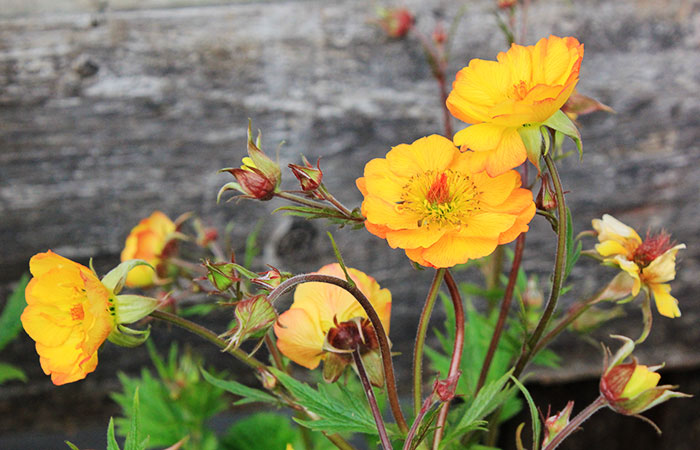
General Gardening Tips
May in the garden is always filled with possibility. From tomatoes to water plants, if there's something you've been waiting to plant, this is the month to go for it!
Watch the weather though: we can still get surprisingly cold nights even in late May. It's a good idea to keep protection on hand for sensitive vegetables and annuals at least until the end of the month.
Remember, even as your flowers and beneficial insects are beginning to take off, so are your weeds and pests. Monitor for issues so you can catch them early, and ask us about the most environmentally-friendly management strategies.
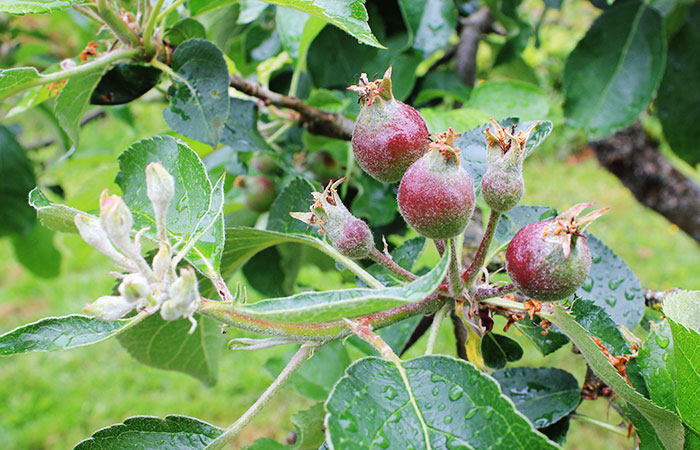
Fruit & Berries
Thin apples and pears when the fruit is under a nickel size to improve cropping consistency.
Monitor fruit trees and berries for insect and disease problems; consult a Sky Nursery associate for recommendations if you spot an issue.
Do not spray fruit trees or berries in bloom.
Apply apple maggot barriers or Surround clay once you’ve thinned your apples or pears. Surround may need to be re-applied depending on rainfall.
Fertilize with organic fertilizer.
Remember to water regularly once the rains stop. Even a weeklong drought can cause fruit drop.
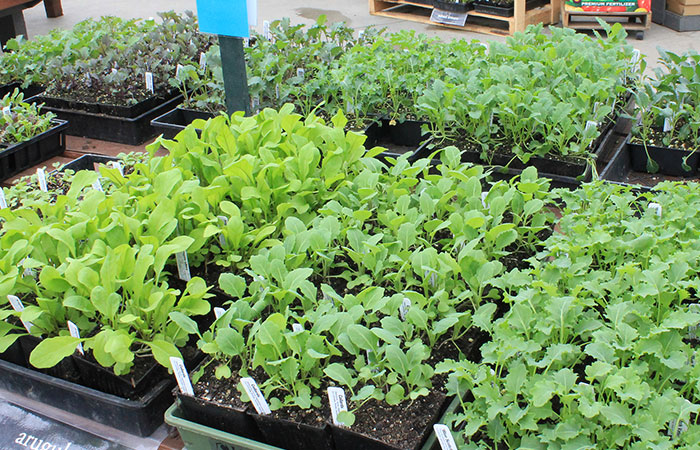
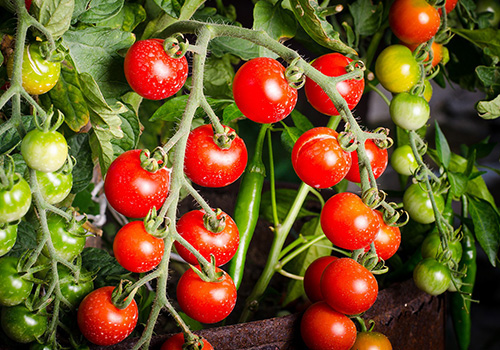
Vegetables & Herbs
It's time to plant spring veggies! This includes all greens, all cabbage family crops, beets, carrots, and other root vegetables, green onions, leeks, and sweet onion transplants, peas and potatoes. Note: this is your last chance until August to plant the cool-season veggies!
This is a great time to plant herbs too. As long as we keep getting occasional cool nights, use season extenders (see below) to protect sensitive herbs like basil and lemon verbena.
Tomatoes… usually Seattle gardeners can plant tomatoes out around Mother’s Day without protection, but go by the weather, not the calendar! Protect them until night-time temperatures stay consistently above 50°F (10°C). Tomatoes benefit from protection from cool May nights, and most varieties will ripen best in our climate with extra help in cooler years. Check the last page of our tomato list for a list of especially cold-tolerant varieties!
Season extenders and ripening aids carried by Sky include actual greenhouses, hoop houses, plant protection blankets, Hot Kaps, Garden Cloches, Season Starter Plant Protectors (Wall o Waters), red plastic mulch, red tomato greenhouse film, and Kozy Coats (red Wall o Waters). (Studies show that red reflects the correct wavelengths to stimulate tomato and strawberry ripening.)
For those restricted in space, we have Tomato Barrels, easy-to-store Tomato Planter Bags, and more.
May is also normally the beginning of the time to plant beans, squash, corn, sweet and hot peppers, and other warm-season crops. But wait until night-time temperatures stay consistently above 50°F (10°C). We would also recommend covering your corn and squash beds with clear or black plastic sheets for about two weeks before you want to plant, to help the soil warm and dry.
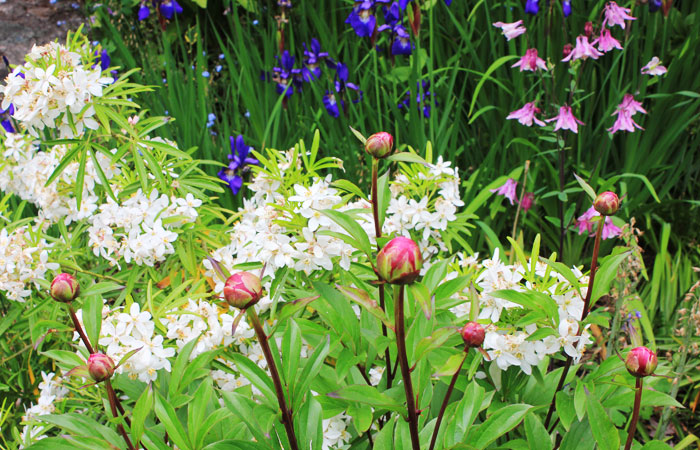
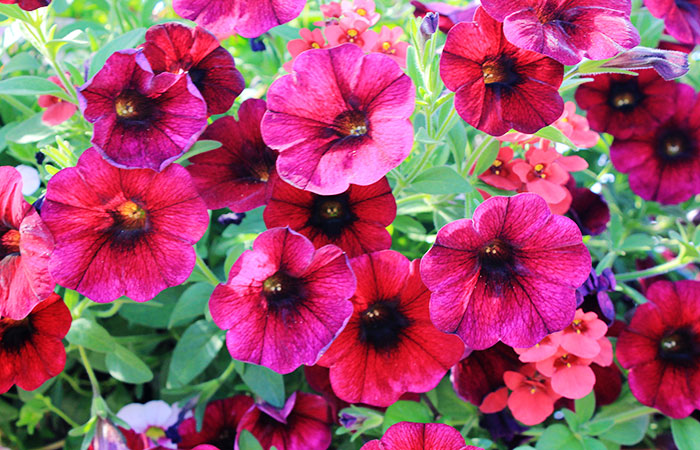
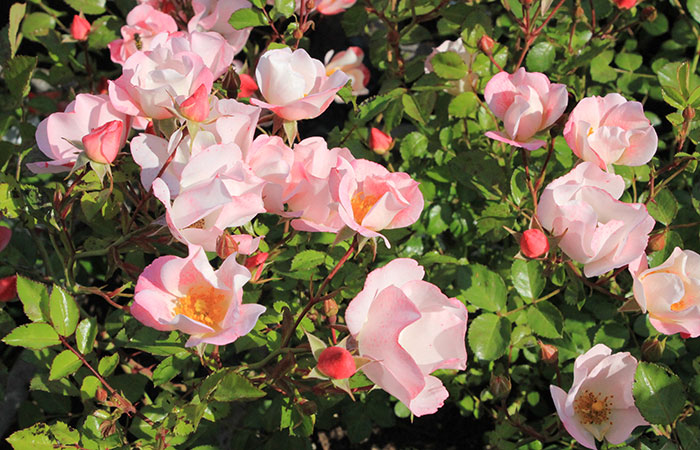
Ornamental Gardening
Fertilize rhododendrons after bloom and remove spent flowers to keep plants tidy. If you need to prune at all, now is the best time to do so.
Prune spring flowering shrubs after bloom.
Remove spent flowers from spring flowering bulbs; leave foliage as long as it is green, because the bulb is storing energy for next spring’s bloom. Tip: you can fill in with fast-growing annuals around your spring bulbs to provide color and interest while the bulbs are fading out.
Native plants, being adapted to our soil and climate, are naturally easy-care. And they appeal as much to wildlife as to humans, attracting birds and pollinators to your garden. May and June sees Sky’s best selection of native perennials such as shooting star and false lily-of-the-valley.
May is also your last great chance to get major plantings established before summer’s heat and drought can stress transplants. Sky has an excellent selection of all the plants you’ll need, from specimen trees and shrubs to perennials, groundcovers, and ferns. Don’t forget annuals in full bloom for instant color!
Roses
apply a little alfalfa and kelp to boost your roses’ immune systems. Watch for aphids on tender new growth (talk with a Sky sales associate for earth-friendly controls).
Containers & Hanging Baskets
Sky has a great selection of gorgeous hanging baskets and custom containers, plus tables upon tables of starter plants for putting together your own. Don’t see exactly what you want? Our container design department can custom-create a planter just for you.
Fertilize heavy blooming annuals in containers or baskets every two weeks with a good liquid fertilizer.
Geraniums, begonias, coleus, sweet potato vine, and other warm-weather lovelies are safe to leave outside without protection once night-time temperatures stay consistently above 50°F (10°C).
Lawn Care
Mow! If possible, leave your clippings on (grass-cycling).
Grasses that do the best in the Puget Sound area are what are known as cool season turf grass. This means that as the summer heats up lawns will go dormant unless watered regularly. Your lawn needs 1 to 2 inches of water per week; if rains do not provide that, you need to water, or let the grass go dormant.
Setting your mowing height higher can reduce water needs by shading the ground and promoting deeper root growth. Improving your soil with extra compost can also promote deeper root growth and increased drought resistance. Healthy turf will weather drought stress better, so make sure your grass starts the summer in good shape by following a good fertilizing and liming schedule.
If you haven’t fertilized yet this spring, do so ASAP with a good organic fertilizer. If you followed our lawn recommendations and fertilized back in February, your next feeding will be at the end of the month (Memorial Day).
If weeds are a problem, try pulling or spot-treating rather than using a weed & feed product. Remember that a well-fed lawn can outgrow most weed problems.
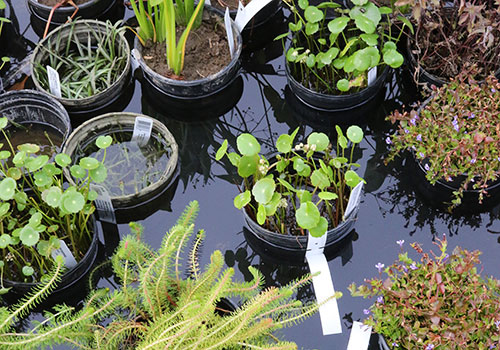
Water Gardening
May in the garden is always filled with possibility. From tomatoes to water plants, if there's something you've been waiting to plant, this is the month to go for it!
Watch the weather though: we can still get surprisingly cold nights even in late May. It's a good idea to keep protection on hand for sensitive vegetables and annuals at least until the end of the month.
Remember, even as your flowers and beneficial insects are beginning to take off, so are your weeds and pests. Monitor for issues so you can catch them early, and ask us about the most environmentally-friendly management strategies.
